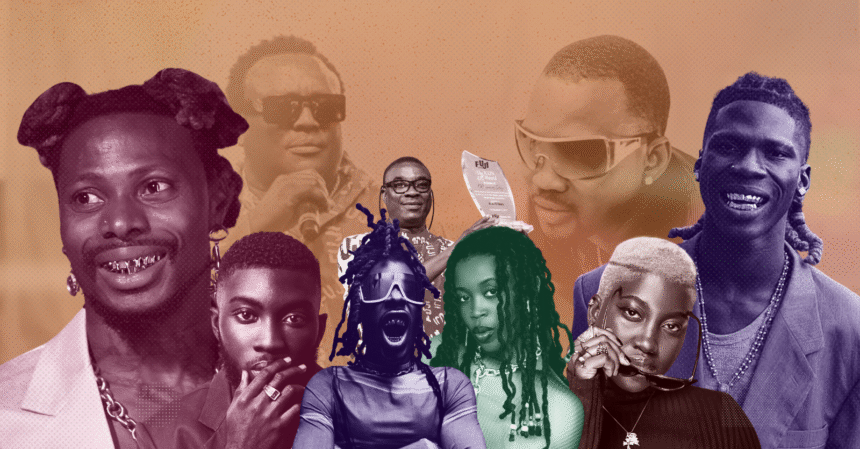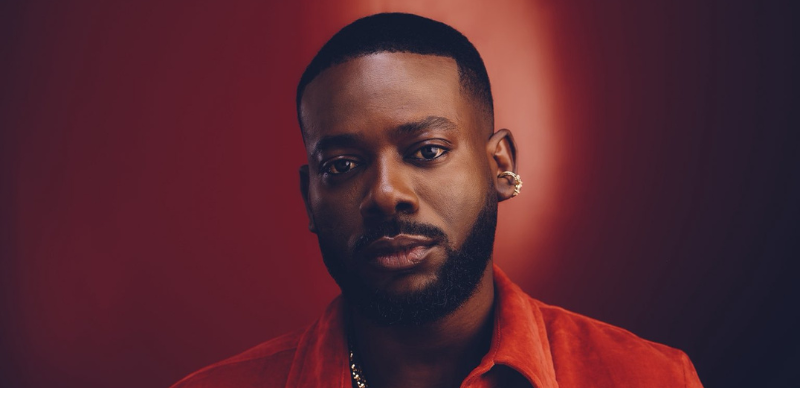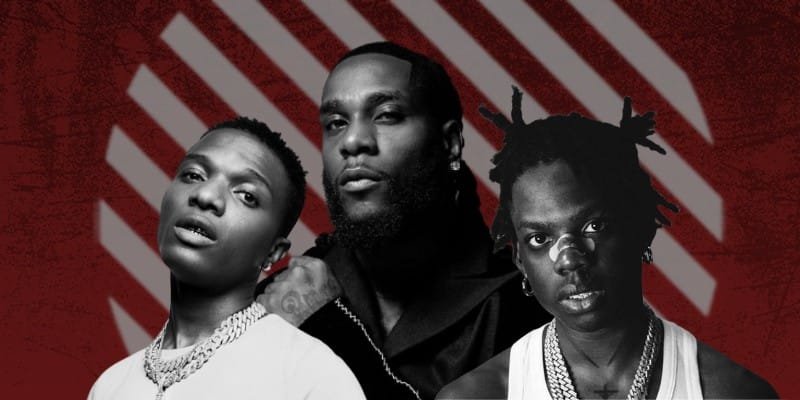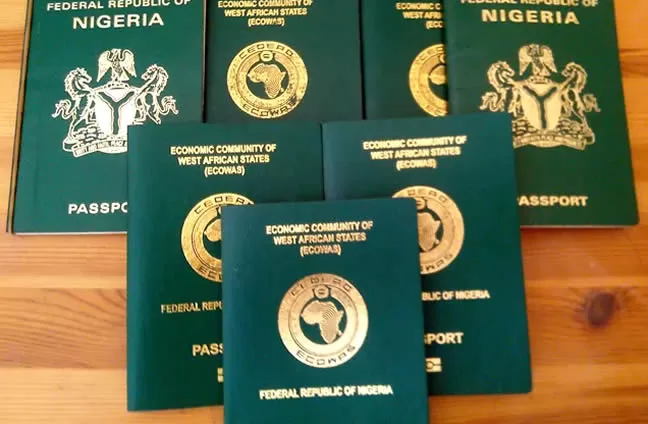Fuji is back! Not in the quiet, background way it’s been lingering in the Nigerian mainstream sound for years, but loud, proud, and unapologetic, in time for when the mainstream needed to hear something different.
Once thought to be fading under the unstoppable rise of Afrobeats, the genre that raised legends and inspired the very sound of today’s stars like Burna Boy, who spoke in the Complex interview with Roger Federer, saying Saheed Osupa is his GOAT of musicians, is now retaking centre stage.
From street corners to global stages, a new wave of artistes are no longer hiding Fuji behind Afrobeats labels; they’re claiming it, owning it, and pushing it straight into the mainstream like Asake has done right from 2022, evident from his breakout album, Mr Money With The Vibe, where he interpolated Barrister’s oke agba record on dull, the very first song off his first album and he has gone on to relate with the Fuji genre.
The origin of the Fuji and Afrobeats connection
Alhaji Agba claimed that Fuji was named after Japan’s stratovolcano, Mount Fuji. According to Yoruba scholars, the word Fuji, like Faaji and Fuja, was already in the lexicon of Lagos Islanders. Mount Fuji was named after Kamui Fuchi, the Buddhist goddess of hearth, fire, and peace. Fuchi’s main role was to keep the fire going. Fuji has been popularised as a genre of Nigerian music beyond the shores of the world based on the work of the creator, Sikiru Ololade Ayinde Barrister, in the 1960s. The origins of Fuji music can be traced to Were music, a percussive and vocal style of Yoruba music traditionally performed during the Ramadan period to wake Muslims for pre-dawn prayers.
Fuji music, one of Nigeria’s most popular music genres, like Afrobeats, is very large on its own, with pioneers like Kollington and notable and successful acts like K1 De Ultimate, Adewale Ayuba, Osupa, Pasuma, Obesere, Malaika, Taye Currency, Atawewe, and so on. Fuji is so large that it has a documentary film produced and directed by Saheed Aderinto, called The Fuji Documentary, with the first episode, Mr Fuji: Barry Wonder, exploring the life and times of Fuji Music’s creator, Sikiru Ayinde Barrister (1948-2010). It made its debut in Ibadan, Nigeria, in February 2024. The subsequent episodes of The Fuji Documentary will be released over ten years.
Right now, the modern Fuji fusion, Fujipiano, and neo-Fuji musical styles infused with the trendy Afrobeats sound are attributed to 9ice, Olamide, Asake, Naira Marley, Qdot, Seyi Vibez, Barry Jhay, Bella Shmurda, TI Blaze, Zinoleesky, Oshamo, amongst many others that take inspiration from the sound, and right now, Cezie is coming up. If some of these stars were born earlier, when there was no movement of “Afrobeats to the world”, they would have been proper Fuji artistes!. That 9ice says in an interview that if he were a Fuji artist, they would have been successful.
Even though before Afrobeats gained the ground it has now, music artistes that started their careers in the 90s and earlier have always blended Fuji with other sounds that suit them, with Wasiu Alabi Pasuma, a proper Lagos-grown man, blending hip-hop with English and popular slang in the 2000s when Afrobeats was taking and gaining early ground, which is evident in his Orobokibo sound.’ “Pasuma wasn’t the first Fuji artist to experiment with hip hop, but he was definitely the first to make a noticeable transition. And it wasn’t only his music. You could see it in his fashion, in the way he lives,” says entertainment media expert and writer, Jide Taiwo. “He practically started that whole movement in Fuji.”
The Fuji rebranded comeback
However, Fuji has gone international thanks to the works of the Fuji OGs; it was on a steady decline locally and is now making a “rebranded comeback.” Despite collaborations and sounds about Fuji over the years, even in Afro R&B and Afro Soul, that touch and sound of Fuji is present there, but everyone calls it Afrobeats.
And now artistes are identifying with it again boldly, and when it is said that Fuji is back, everyone is tapping into Fuji purely and isn’t afraid to call it what it is. Not that Fuji left or went anywhere; Fuji itself was part of the sounds that shaped Afrobeats, from the Afrobeats OGs like 9ice, who is also from Lagos, infusing the sound of Fuji and hip-hop into his Certificate and Gongo Aso albums, down to the likes of Wizkid, Kizz Daniel, Reminisce, and the rest, who were brought up where indigenous Fuji was played. The genre really shows in their sound, but they call it “Afrobeats”.
And in continuation, Afrobeats acts have never denied the sound of Fuji right from the early 2000s, but since Asake’s breakthrough, infusing Fuji sounds in his songs, sampling Jazzman Olofin’s Raise the roof and Adewale Ayuba on his Active single,
Seyi Vibez on his Fuji interlude and Oshamo’s Superfuji(Gobe) record, it appears that there is a wave right now in the 2020s where everyone is embracing and identifying with the sound in a big way. Even with Fuji mainstream smash hits like Koloba Koloba and Ade Ori Okin by Adewale Ayuba and K1, respectively, which appeal to the younger fans. And Falz sampled Barrister’s Fuji Garbage on his song, No Less, which appealed to a larger audience off his album, The Feast.
A lot of upcoming acts refuse to define their sound, and it is rare to see an upcoming act that claims to be a Fuji artist like Cezie. But he says and claims he is a Fuji act, and he says he has been doing Fuji Fusion since before Asake blew up. He discussed this on a podcast to clear the air about sounding like Asake, even though he is still relatively new. Cezie is one to watch out for in the Nigerian mainstream sound with his Fuji sound.
Going on, Adekunle Gold’s album is titled Fuji after the genre. Even though his sound has always had Fuji influences, he will always be an exceptional Afrohighlife and Afropop artist and not a “modern Fuji artiste,” but he always delivers on each work he releases, right from his breakout. Other artists like Barry Jhay, Bella Shmurda, Olamide and others have also found a way to imbibe Fuji on their projects. Bella Shmurda’s Vanity album tracklist includes a feature of OG K1 De Ultimate on the Fuji Fusion track, while Olamide’s Anifowose from his 2013 album Baddest Guy Ever Liveth samples a Fuji song.
The past is making a comeback in the music industry worldwide, not just in the African music space, with creatives taking samples and reimagining old songs by interpolating them into their recent works. Artists are drawing inspiration from the past now more than ever, giving African traditional genres like Fuji a rare chance to go mainstream again. Soon, mainstream artists who sing Fuji will proudly identify as Fuji artists — not just Afrobeats artists. It’s only a matter of time.

















